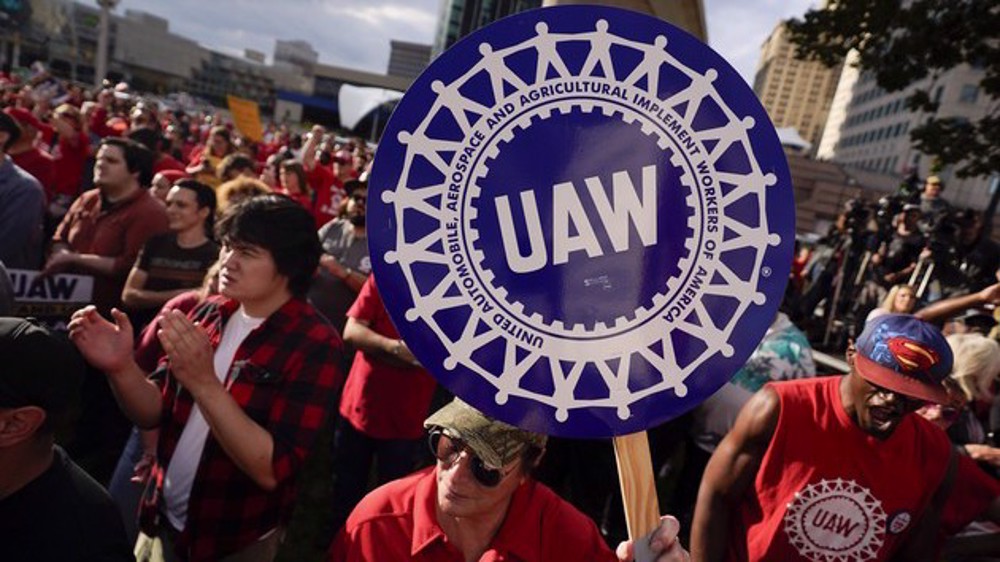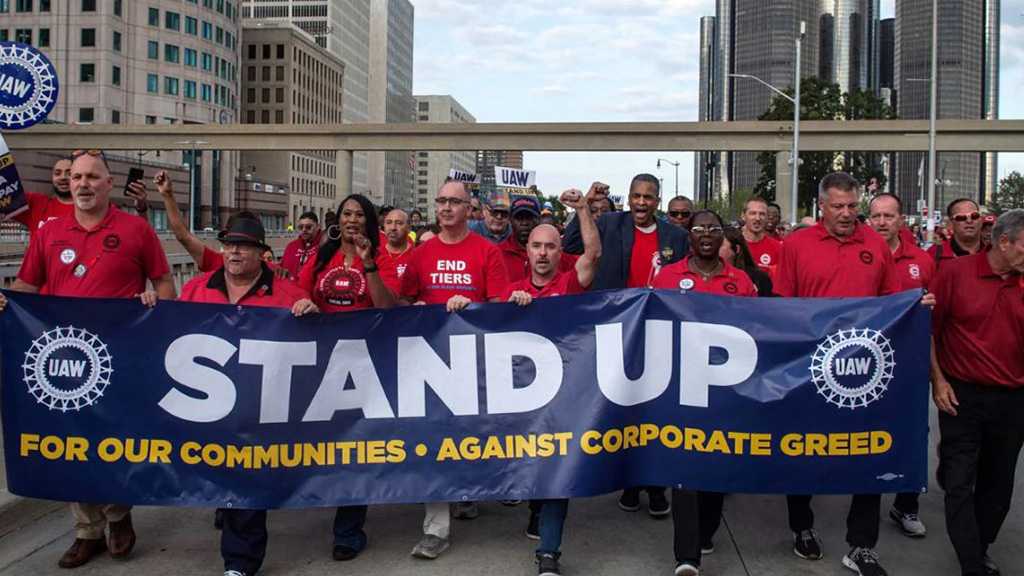The largest auto workers union in the United States has threatened to extend the current strike against the top three automakers in Detroit if those businesses do not agree to raise their wages.
The United Auto Workers (UAW), which represents approximately 150,000 auto workers, began the strike on Friday in an effort to pressure the major automakers, General Motors (GM), Ford, and Stellantis, to increase wages.
If we don’t receive superior offers, Shawn Fain, president of the UAW, stated that the companies had “no excuse” for not resolving salary disputes given their enormous profits in recent years. “Take care of the members’ needs, we’re going to amp this up even more,” he added.
“We are ready to take on any challenge. The membership is prepared, he continued, and it was tired.
Read more: 3 major US auto factory workers announce strikes at the same time
The UAW has never struck against all three automakers at the same time before. As a result, the strike has been deemed the most ambitious industrial labor action in the US in decades.
While the three automakers have only previously offered raises of about 20%, the lawsuit aims to compel them to offer a 40% pay increase to the workers.
Stellantis had provided its employees with what it described as a “highly competitive” wage increase of 21% over four years, but Fain said that was “definitely a no-go.”

Production at the factories that make the Ford Bronco, Jeep Wrangler, and Chevrolet Colorado, among other well-known models, has been halted as a result of nearly 13,000 workers leaving three auto factories in Michigan, Missouri, and Ohio.
Also on Sunday, Republicans seized the chance to criticize President Joe Biden’s economic record in an effort to link the strike to voters’ worries about inflation.
Former Vice President Mike Pence said, “I have no doubt in my mind that all those hard-working autoworkers are living in the same reality as other Americans, and that is that wages are not keeping up with inflation.”
He criticized Biden’s administration’s push for electric vehicles, which he claimed would primarily benefit battery-makers in China, and blamed him for “the worst inflation in 40 years.”
Similar comments were made by former president Donald Trump, who asserted, “The auto workers won’t have any jobs. Since China will be the primary manufacturer of all of these vehicles, this means that China will also be the primary manufacturer of electric vehicles. “.

